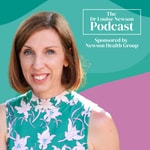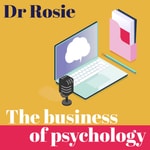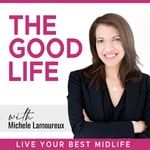The Dr Louise Newson Podcast – Détails, épisodes et analyse
Détails du podcast
Informations techniques et générales issues du flux RSS du podcast.

The Dr Louise Newson Podcast
Dr Louise Newson
Fréquence : 1 épisode/7j. Total Éps: 316

Classements récents
Dernières positions dans les classements Apple Podcasts et Spotify.
Apple Podcasts
🇨🇦 Canada - medicine
28/07/2025#16🇬🇧 Grande Bretagne - medicine
28/07/2025#2🇬🇧 Grande Bretagne - healthAndFitness
28/07/2025#21🇺🇸 États-Unis - medicine
28/07/2025#52🇨🇦 Canada - medicine
27/07/2025#17🇬🇧 Grande Bretagne - medicine
27/07/2025#2🇬🇧 Grande Bretagne - healthAndFitness
27/07/2025#19🇺🇸 États-Unis - medicine
27/07/2025#37🇨🇦 Canada - medicine
26/07/2025#20🇬🇧 Grande Bretagne - medicine
26/07/2025#2
Spotify
🇬🇧 Grande Bretagne - health & fitness
28/07/2025#41↘🇬🇧 Grande Bretagne - health & fitness
27/07/2025#35→🇬🇧 Grande Bretagne - health & fitness
26/07/2025#35↘🇬🇧 Grande Bretagne - health & fitness
25/07/2025#33↘🇬🇧 Grande Bretagne - health & fitness
24/07/2025#31↘🇬🇧 Grande Bretagne - health & fitness
23/07/2025#30↗🇬🇧 Grande Bretagne - health & fitness
22/07/2025#31↗🇬🇧 Grande Bretagne - health & fitness
21/07/2025#34↗🇬🇧 Grande Bretagne - health & fitness
20/07/2025#39↗🇬🇧 Grande Bretagne - health & fitness
19/07/2025#40↗
Liens partagés entre épisodes et podcasts
Liens présents dans les descriptions d'épisodes et autres podcasts les utilisant également.
See all- https://www.samaritans.org/
1127 partages
- https://www.newsonhealth.co.uk/
65 partages
- https://www.instagram.com/doctors_kitchen
702 partages
- https://www.instagram.com/bryonygordon
70 partages
- https://www.instagram.com/drmaryclaire
57 partages
- https://www.facebook.com/felicegershmd/
42 partages
- https://www.facebook.com/FemaleGP
7 partages
Qualité et score du flux RSS
Évaluation technique de la qualité et de la structure du flux RSS.
See allScore global : 52%
Historique des publications
Répartition mensuelle des publications d'épisodes au fil des années.
271 - Endometrial cancer, the menopause and HRT
mardi 27 août 2024 • Durée 32:03
In this week’s episode Dr Louise is joined by one of her patients, Lesley Henry, a nurse who lives in Northern Ireland. Lesley shares her experience of menopause, which started before she received a diagnosis of endometrial cancer.
Her treatment for cancer led to a surgical menopause, which she found debilitating. Lesley explains she feared her brain fog and fatigue would prevent her from returning to work and from caring for her mother.
A firm believer in the importance of quality of life, Lesley decided to resume taking HRT. She hopes to help other women who are going through similar experiences and shares the things that have given her the strength to make decision about her treatment and her life:
- I have a faith. Not everybody will have the same faith as I have, and that's fine, but I think having a faith helps.
- Be proactive and find support groups. Through Action Cancer I learnt about scar therapy, which has helped, plus I completed a positive living programme to learn how to re-energise and rebuild my life.
- Be prepared to say goodbye to the old you. She's not coming back and in a way, she needs to go.
- Trust in yourself and listen to your heart. You are worthwhile and your life matters.
Click here to find out more about Newson Health
270 - Managing menopause at work: how to help yourself and your colleagues
mardi 20 août 2024 • Durée 30:19
Menopausal women are the fastest-growing demographic in the UK workforce, yet a 2022 survey by the Fawcett Society found one in ten women leave work due to their menopause symptoms.
This week, Dr Louise is joined by Oonagh Ferson, who researched the experiences of perimenopausal and menopausal women in the workplace as part of her MSc in HR management at Queens University Belfast.
Oonagh shares her research findings and some of the stories of women she interviewed, and with Dr Louise discusses the impact of perimenopause, menopause and other conditions such as PMS and PMDD in the workplace.
Oonagh offers advice on how women can thrive at work, including the three things she believes would make the biggest difference to women in the workplace:
- A bottom up approach, where employers sit down with women and ask them: what would help you? What can we do?
- Even though it may be difficult at times, advocate for yourself: be open with your employer to secure the support or adjustments you need
- Having open discussions, using clear language and avoiding terms like ‘the change’, can help dispel the stigma around menopause
There is a chapter dedicated to menopause and the workplace in Dr Louise’s bestselling book, The Definitive Guide to the Perimenopause and Menopause. Order your copy by clicking here.
Click here for more about Newson Health.
261 - Chronic pain and menopause: what’s the link?
mardi 18 juin 2024 • Durée 33:55
About 28 million people in the UK are thought to be living with chronic pain – that’s 43% of the population, according to the 2011 Census.
But what is chronic pain, and how can it overlap with the perimenopause and menopause?
In this week’s episode Dr Louise is joined by Dr Deepak Ravindran, a consultant in pain medicine and author of The Pain-Free Mindset: 7 Steps to Taking Control and Overcoming Chronic Pain.
Dr Deepak unpicks the science behind chronic, or persist, pain and the two discuss the relationship between hormones, inflammation and pain.
Dr Louise and Dr Deepak have co-authored a new article which offers 10 top tips for primary care practitioners on improving care for women with fatigue and/or pain. You can access the article here.
Follow Dr Deepak on YouTube, Instagram, LinkedIn and X.
Click here to find out more about Newson Health
171 - Finding hope with hormones after 20 years of struggling with my mental health
mardi 27 septembre 2022 • Durée 30:20
Content warning: This episode contains discussion of suicide
Vanessa had always suffered with PMS and struggled with her mood and emotions after the birth of each of her children. After her fourth child was born, Vanessa’s mental health took a severe turn and she became suicidal. When her husband intervened and insisted she received specialist care, a psychiatrist realised how unwell Vanessa was and this was the beginning of an eighteen year journey of taking medication and receiving mental health support, including spells of inpatient care. It was all Vanessa could do to wake up every day and look after her children. Vanessa had wondered whether her mood was linked to her hormones as she would have 2 good weeks in every month before two bad weeks would inevitably creep in. In more recent years, friends persuaded her to see a menopause specialist and begin topping up her declining hormones and, as Vanessa explains, this has been lifechanging.
Vanessa’s advice:
- You may not be well enough to go and ask for help yourself, allow family and friends to support you with this.
- Don’t always accept everything you’re told by healthcare professionals, challenge thoughts and negative attitudes towards mental health and the link with hormones.
- We develop lots of coping strategies to mask how we are really feeling. Don’t carry on hiding how you really are, speak to someone.
Help is available if you are struggling. Please contact the Samaritans by phone on 116 123, download the Samaritans Self-Help app or email [email protected]
170 - Recognising and reversing osteoporosis with Dr Taher Mahmud
mardi 20 septembre 2022 • Durée 28:24
Dr Taher Mahmud is a rheumatologist from London who has the ambitious plan of eradicating the bone weakening disease osteoporosis by 2040. Osteoporosis is a common disease, particularly for women around the time of the menopause, but with the right nutrition, exercise and hormone supplementation it is possible to prevent loss of bone tissue and even reverse osteoporosis if it has developed.
The experts discuss this worldwide preventable problem and some common misconceptions about bones. The discussion covers the challenges of current healthcare systems in getting accurate information about your bone health and the importance of raising awareness of how preventable osteoporosis is to all individuals.
Dr Mahmud’s tips:
- Take time for yourself, think about your body and your health and value it
- It is easy to diagnose osteoporosis and treat it, however…
- It is far better to learn about your bone health and do what you can to prevent osteoporosis
To learn more about your own risk of osteoporosis, visit www.sticksandstones.org.uk
Dr Mahmud is based at the London Osteoporosis Clinic, for more information visit www.londonosteoporosisclinic.com
169 - The unfair choice for elite female athletes with Janet Birkmyre
mardi 13 septembre 2022 • Durée 30:51
Janet Birkmyre began her career racing as a track cyclist in her mid-30s and won her first elite medal at the age of 40. She went on to win three elite National Championship titles and multiple masters World and European titles. Now at 55, Janet is continuing to improve her times and fitness, and she is a champion of women continuing to enjoy and excel at sport at any age.
In this episode, the conversation covers Janet’s experience of perimenopause and menopause and taking HRT. As an elite athlete however, there are sanctions for Janet if she takes testosterone replacement as there are currently no exemptions to the regulations for therapeutic use in women, only for men. Janet shares her frustration at the unfair choice imposed on her of continuing with the sport she loves and excels in or replacing her low testosterone levels to help with her ongoing menopausal symptoms.
Janet’s three positive steps to improve health through exercise:
- Enjoy being active – make it fun
- Exercise with a friend – you will motivate and encourage each other
- Don’t be self-conscious or compare yourself with others – we come in all wonderful shapes and sizes.
So whatever you look like, whatever you’re wearing, be active and enjoy it!
Follow Janet on Instagram @janbirkmyre_torq_track_cycling
168 - The facts and fiction about menopausal skin with Dr Sajjad Rajpar
mardi 6 septembre 2022 • Durée 33:48
Dermatologist, Dr Sajjad Rajpar makes his third visit to the podcast this week to separate the facts from the fiction about skin changes in perimenopause and menopause and debunk some of the messaging around recent skin products marketed for menopause.
Dr Rajpar explains the importance of estrogen for skin and how HRT can prevent and heal damage to skin tissue such as leg ulcers, for example. The experts discuss the negative impact of skin product marketing on initially younger women and now menopausal women, and unpick some perceptions about what a ‘menopausal’ face cream will and won’t do for your skin.
Dr Rajpar’s three tips for problematic skin:
- For dry and irritable skin, avoid foaming and detergent based cleansers and use very gentle cleansing products or even a moisturising lotion to wash with. They may not lather or bubble but they do adequately remove dirt from your skin.
- Use a good moisturiser once or twice a day, consider a lotion in the day as it is lighter and use a cream at night.
- There are creams containing active ingredients that don’t have to rob the bank. Look for ingredients like retinol, vitamin C, and sunscreen.
You can visit Dr Rajpar’s website here www.midlandskin.co.uk and follow him on social media @dr.rajpar_dermatologist on Instagram.
167 - The benefits of yoga (revisited) with Lucy Holtom
mardi 30 août 2022 • Durée 31:12
This week offers a chance to revisit a previous podcast conversation – or perhaps hear it for the first time. Lucy Holtom is an experienced Ashtanga yoga practitioner who has a particular passion for helping with women throughout all cycles of life whether it’s to help manage the fluctuation of hormones during menstruation, postnatal recovery, or perimenopause and postmenopause. In this episode, Lucy and Louise discuss the different types of yoga, individual practices and the benefits they can bring. Lucy explains how her interest and experience in well woman yoga evolved and how she supports women in the perimenopause and menopause.
Lucy’s 3 tips for those interested in trying yoga for the first time:
- If you want to try a class, look for recommendations from others and chat to different teachers to find what’s right for you.
- Wear comfortable clothing – you don’t need to spend money on new yoga outfits, just wear whatever you can move freely in.
- Go with an open mind and enjoy!
Visit Lucy’s website at www.livingyouryoga.co.uk
Follow Lucy on Instagram @xxlivingyouryogaxx
This podcast episode was first released in October 2019
166 - Researching suicide in perimenopause and menopause with Dr Pooja Saini
mardi 23 août 2022 • Durée 29:11
Advisory: we would like to apologise for the sound quality in this episode, which was due to technical issues experienced during recording.
Dr Pooja Saini is a Chartered Psychologist and Reader in suicide and self-harm prevention based at Liverpool John Moores University. Her work has a particular focus in suicide prevention in primary care and developing community-based interventions for high-risk groups.
Since connecting, Louise and Pooja have been discussing the impact of perimenopause and menopause on mood, mental health and suicide and the many research gaps and unanswered questions in this space. In this episode, Pooja explains more about what is known and unknown regarding the effect of hormones on suicidal thoughts and outlines the research plan for a PhD funded by Newson Health Research and Education.
Pooja’s tips for those with suicidal thoughts:
- Early intervention is key; seek help as soon as you feel you are not yourself
- Change your habits to do more of what you really enjoy
- Talk to your loved ones, family and friends. Don’t try and hide or mask it.
If you need support, you can call the Samaritans on 116 123 for free from any phone or email them at [email protected]
Pooja's Social Channels
Reference for BMJ article discussed:
McCarthy M, Saini P, Nathan R, McIntyre J. Improve coding practices for patients in suicidal crisis. BMJ. 2021 Oct 15;375:n2480. doi: 10.1136/bmj.n2480. PMID: 34654729.
165 - When menopausal symptoms persist, with Dr Anna Chiles
mardi 16 août 2022 • Durée 32:05
Dr Anna Chiles is a GP and works in an NHS practice in Gloucestershire and at Newson Health as a menopause specialist. In this episode, the experts discuss the range of symptoms that can occur in the perimenopause and menopause and the impact of these on daily life, and they highlight what can be done for women when symptoms persist for many years.
Anna’s 3 tips for women who have struggled with symptoms for many years:
- It’s never too late to start HRT and have that discussion with your health practitioner. If you choose to try it, you don’t have to continue with it if you don’t like it.
- You don’t have to stop taking HRT when you reach a certain age
- It’s so important to keep active, for your independence, your balance, joints, and muscle strength. This goes hand in hand with hormone replacement.









